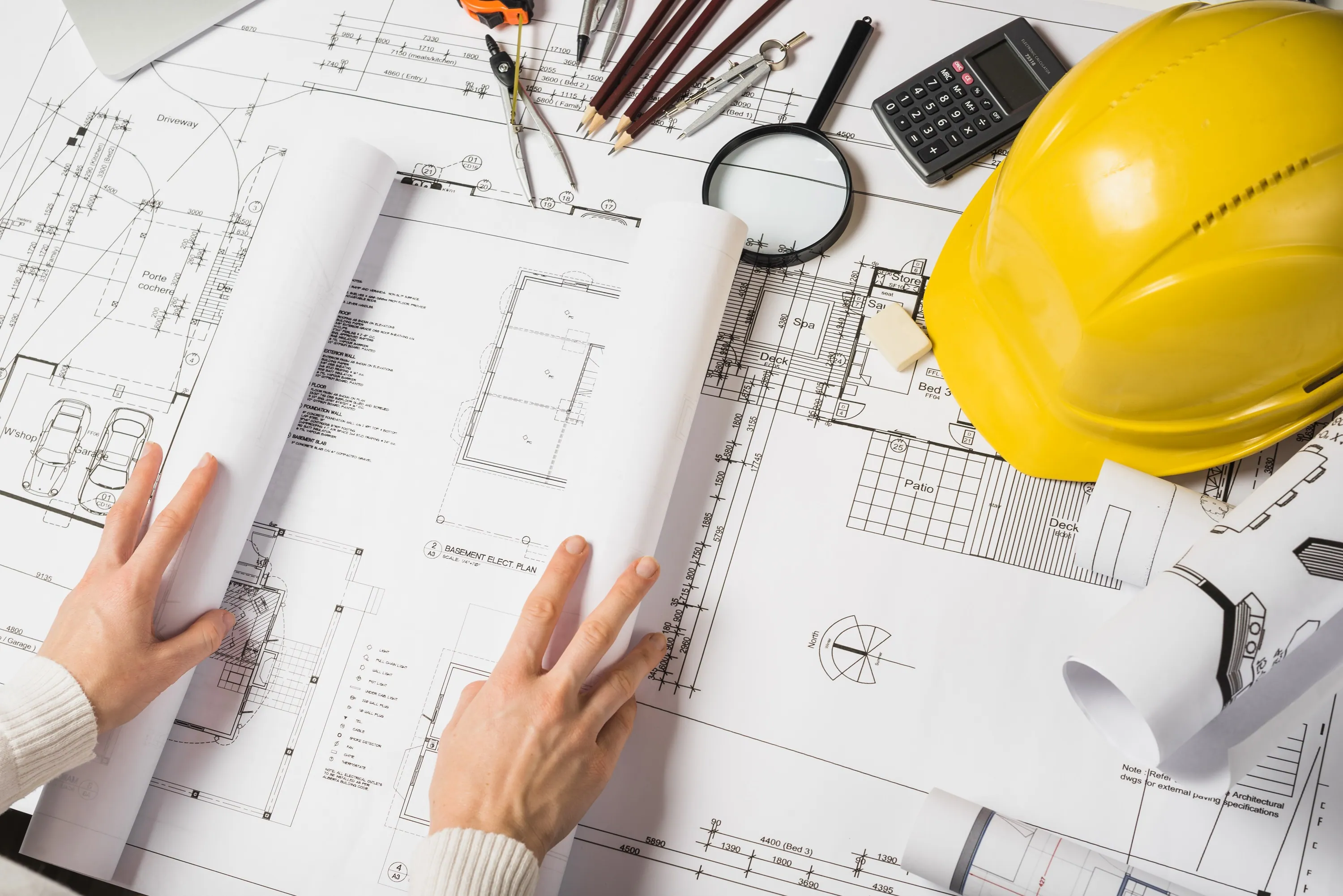Are you interested in Construction Management? Then this is the perfect course for you. Learn how to manage Construction professionally!
450 Hours Duration
Completion Certificate
No Entry Requirements
Endorsed Courses
Get Your Course Now
Only 1 Day Left at this price
Discount 80% £660.00


Course Overview
Certificate of Construction
The construction industry might be one of the most diverse industries in the world today. It however still relies on the technical expertise and practical know-how of a construction manager.
The advanced Certificate of Construction Management introduces candidates to the crucial knowledge, skills, techniques, and concepts of construction management, required to successfully navigate the challenging waters of the construction industry. In a world begging for extremely savvy construction managers, this course reveals the vital secret needed for candidates to be at the top of their game.
This graduate certificate in construction management is designed for everyone – from graduates with an eye on the construction industry to established construction managers. To suit the schedule of even the busiest of construction managers, this course is online-based and comes with other fantastic perks. Candidates can study and carry-out assignments at the time of their choice. Our construction project management classes also come with the full support of a personal tutor who offers guidance throughout the entire duration of the course. At the end of the course, candidates’ skills and techniques are certified by an QLS endorsed certificate.
The Advanced Diploma in Construction Management is loaded with interesting and highly educative contents. The course commences with an introduction to construction management and delves into the organisation and cost of construction projects. A discussion that centres on-site investigation, assessment and organisation then follows.
The course then looks into the aspect of equipment and material, focusing on their planning and management. An explanation of Storage as well as purchasing and vendor management is quickly followed by quality control and human resource management in construction industry. The course ends with an elucidation of the legal aspect of contracting.
Who Should Take This Course
- Newcomers looking to start at the highest possible level
- Established construction managers keen to learn modern trends and concepts in the construction industry.
- Construction workers who have the zeal to get promoted
- Engineers interested in a career change
- Anyone interested in acquiring the skills, knowledge of a construction manager.
Course Syllabus
The course consists of the following 13 units.
Unit 1: Construction Management - An Introduction
The first unit of the Advanced Diploma in Construction management gives an overview of the construction management. Candidates are introduced to the concepts and principles of construction management. Also, the roles and responsibilities of a construction manager as well as the techniques and skills he/she must possess are discussed.
Unit 2: Organisation of Construction Projects
Organisation of construction projects, which is the backbone of a project, forms the topic of discussion in unit two. Candidates are exposed to the project life cycle which consists of the project initiation phase, the project planning phase and the project closing phase.
Unit 3: Cost Estimation
To avoid under or over budgeting, candidates must understand the importance of cost estimation and how to ensure its accuracy during construction projects. This unit focuses on revealing the various methods of arriving at an accurate estimation of projects, from the initiation phase to the completion phase.
Unit 4: Preliminary Site Investigation and assessment
The fourth unit expounds the concept of site investigation and assessment. Candidates are walked through various topological factors and other important criteria to consider when choosing a site.
Unit 5: Site Organisation in Construction Industry
Attention shifts to site organisation in the fifth unit of the Advanced Diploma in Construction management. The unit covers all the critical aspect of the day-to-day activities of a construction site including accommodation, material management, utilities, health and welfare of workers.
Unit 6: Construction Equipment Planning
Unit 6 delves into the aspect of construction equipment planning. Candidates investigate the decision-making process, which looks at the type of equipment to use, purchase of equipment, renting of equipment. The unit also exposes the concept of equipment financing to candidates.
Unit 7: Management of Construction Equipment
The seventh unit focuses on management of construction equipment, which provides candidates with an in-depth explanation of equipment maintenance and repair, equipment inventory and tracking, replacement analysis, stock planning, and the general organisation of on-site equipment.
Unit 8: Management of Construction Materials
The course advances to explain the concept of construction material management, which sheds light on the potential challenges of material purchase and material handling and storage. The importance of material supply and distribution as well as the roles construction managers play in material management are also looked into.
Unit 9: Storage Management
Unit 9 walks candidates through another important concept – Storage management. The unit scrutinises warehousing, preservation of stored material, and other concepts to ensure adequate storage management. This unit also introduces material damage resulting and the various ways to prevent it.
Unit 10: Purchasing and Vendor Management
The tenth unit provides an intensive explanation of the concept of purchasing and vendor management, which exposes candidates to the objectives, types and the procedures of purchasing. The unit also takes a look at vendor management in the aspect of vendor evaluation, compliance and delivery.
Unit 11: Quality control for construction works
Candidates’ attention is brought to focus on quality controlling during construction activities. The unit investigates the pros and cons ensuring quality and their implications. Candidates are also exposed to various areas of quality control including materials, subcontractors, personnel and procedures.
Unit 12: Human Resource Management in Construction Industry
Unit 12 focuses on a very critical aspect of construction management – Human Resource Management. The roles of a construction manager as the HRM are analysed. Also, candidates are introduced to essential skills and techniques of an excellent HRM such as time-management, organisation and communication.
Unit 13: Legal Aspects of Contracting
This high-level course in construction management is brought to an end with an exploration of the legal aspects of contracting. This unit exposes candidates the various facets of construction law such as the elements and types of construction contract, equipment rental and purchase agreements, management contract and project dispute.
Career Path
The completion of this uniquely designed high-level course lays the foundation for a prosperous career in construction management and a fulfilling life. Candidates are may be able to work as site engineers, construction managers, quantity surveyors, risk managers and numerous others. Take home pay ranges between £28,000 and £80,000 according to experience and expertise.
Endorsement
At the end of this course successful learners will receive a Certificate of Achievement from the Quality Licence Scheme and a Learner Unit Summary (which lists the components the learner has completed as part of the course).
This course and/or training programme has been endorsed by the Quality Licence Scheme for its high-quality, non-regulated provision and training programmes. This course and/or training programme is not regulated by Ofqual and is not an accredited qualification. Your training provider will be able to advise you on any further recognition, for example progression routes into further and/or higher education. For further information please visit the Learner FAQs on the Quality Licence Scheme website.
FAQs
What key areas does the Construction Site Management Level 5 course focus on?
This course explores advanced concepts such as project organisation, site investigation, equipment and material management, HRM in construction, and legal aspects of contracting.
Is this course suitable for someone working in the construction field already?
Yes. The course is ideal for professionals seeking to upgrade their site management skills or move into a supervisory or project management role.
How does the course address quality control in construction?
A dedicated unit covers quality control procedures across materials, subcontractors, and staff. It emphasizes compliance, safety, and performance standards.
Will this course improve my knowledge of construction equipment and storage?
Absolutely. Two key units focus on construction equipment planning and management, while separate modules tackle material storage and vendor management.
What certification will I receive upon course completion?
You will earn a CPD-accredited certificate from OHSC as well as a Certificate of Completion from CPD Courses.com, both of which are valuable for career development.
What are the five main functions of a building?
The five key functions are: shelter, support for activities, environmental control, aesthetic appeal, and safety/security for occupants.
What are the 5 major functions of management?
The five core management functions are: planning, organizing, staffing, directing, and controlling.
What are the 4 roles of management in a construction firm?
The four essential roles are: project planning and execution, resource allocation, risk and quality management, and stakeholder coordination.
What is the full form of building?
While "building" is not an acronym, it refers to a structure with walls and a roof, constructed for human use such as residence, office, or industrial activities.
Who is the father of management?
Henri Fayol is considered the father of modern management. He introduced key managerial principles still widely used in construction and other industries today.


Your Certificate, Delivered Instantly & Professionally
Finish your course and instantly download your PDF certificate to share or showcase. Prefer a hard copy? We’ll send you a beautifully printed version, ready to frame and display with pride!
Recognised CPD Certification
Earn a fully accredited CPD certificate that’s respected across industries.
Instant Download & Print
Download your certificate immediately after completing your course – perfect for your records or CV.
Printed Copy Included
You’ll also receive a professionally printed certificate delivered straight to your door – ideal for framing and display.

Verifiable Unique ID
Each certificate includes a unique ID number, easily verifiable by employers.
High-Quality Print
Enjoy a professionally printed certificate that looks impressive and feels premium.
Completion dates included
Your certificate clearly displays the completion date, making renewal planning simple.
What our Students say
Celebrating our Clients and Partners





























